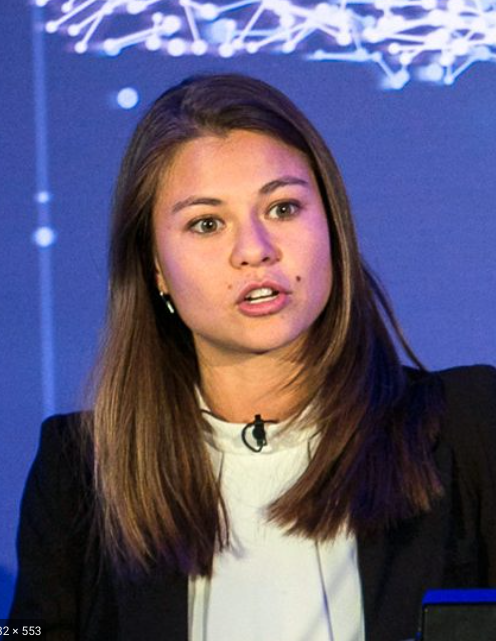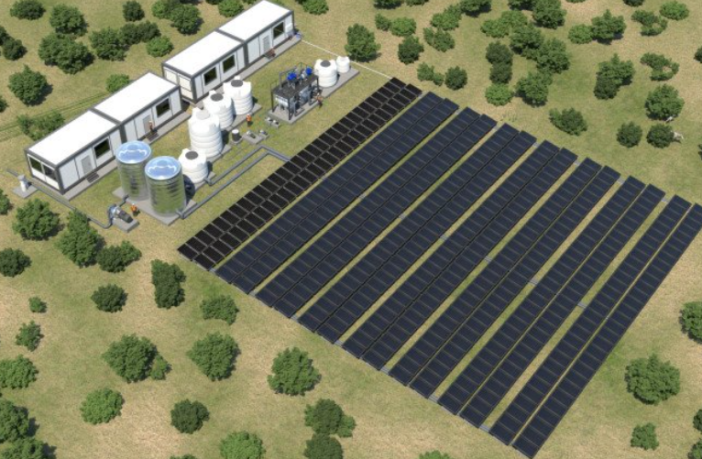It is one of life’s biggest ironies that people in water-stressed regions often live by the sea- in theory, a virtually endless supply of water. In arid and coastal areas, desalination is key to supplying drinking water, yet water purification technologies can be expensive, and often people who are most deprived of clean water and in need of these systems cannot afford them.
One company that has been seeking to address this imbalance is Desolenator. Born out of a ‘eureka’ moment the company has pioneered a desalination system that is efficient, inexpensive, and crucially solar-powered, meaning it can work pretty much anywhere.
The company has also been on a journey. It began with a crowdfunding campaign several years ago and has now signed a deal with beer maker Carlsberg Group to create a water desalination plant powered by solar energy in a small east Indian town.
We caught up with Louise Bleach who is head of Impact at Desolenator to find out more about the company’s history, the deal with Carlsberg, and where it sees its role in the future
What is your backstory? Why tackle the global water crisis?
Inspired by years of working in the Middle East, our founder and inventor William, had a ‘eureka’ moment. Just like his current home Abu Dhabi, many water-stressed countries are blessed with a coastline and abundant sunshine. What if one could harness both these elements to create an infinite supply of clean drinking water? A well-timed introduction from a mutual friend brought Alexei Levene into the picture and before long the first prototype had been built. Whilst most tech start-ups were created in a garage, Desolenator was born in Alexei’s back garden in Kerala, India.
Though we may be a small organisation, we have big ambitions to design a better future. Access to water is absolutely key to poverty eradication, prosperity and human development. With the right leadership, sustainable solutions and financing – this huge global crisis is in fact eminently solvable. We just need to join these elements with the desire and drive to make change happen.
And what was the breakthrough that enabled you to develop the product?
The initial ‘eureka’ moment was centred around harnessing solar in a new way. Our custom PVT panels capture both electrical and thermal energy, making us four times more efficient than standard PV. This increase in efficiency enables us to purify complex water types sustainably and at scale. This initial breakthrough spurred a whole series of developments resulting in the Desolenator systems you see today. From the beginning, we sought to overcome the limitations of current water technologies (dependence on membranes, harmful chemicals and carbon-intensive processes) and instead create a truly sustainable solution. We have sought to create a step-change and a radical new approach to water purification.
Developing a divergent technology in a notoriously stagnant industry does not come without challenges. There have been many setbacks, dozens of roadblocks and multiple dead ends. The uniting force that has continued to propel the company forward has been its people – the minds and, most importantly, the hearts behind the technology. We have been so fortunate to have a mission-led team as well as a phenomenal ecosystem of partners and supporters.
And what would you say has become your USP?
USP is a question of priority and today our global priority is to secure our future by addressing our climate crisis. First, we need to achieve global carbon neutrality within the next three decades. Second, we must deliver breakthrough adaptations to protect people and businesses from climate impacts.
Desolenator is a net-zero water solution that enables communities and businesses to build resilience in the face of a changing water future. Each system uses 100% solar to purify complex water sources at scale without external requirements such as filters, membranes, or extensive treatment chemicals.

How have both climate change and Covid19 affected your company’s trajectory?
As we change our climate, we fundamentally change our hydrological cycle. Climate change is understood as driven by CO2 emissions but it is felt and experienced through water, in floods and droughts. In areas experiencing flooding, contamination is becoming too complex for standard water systems to manage. In areas of drought, alternative water sources such as seawater must be utilised. Desolenator is optimised for such circumstances and we are seeing increasing demand from those at the forefront of this crisis.
As for Covid, from an operational perspective, we have had struggles like all businesses. Not to mention, fundraising our Series A during a pandemic! Having said that, Covid has brought the importance of clean water to the forefront of people’s minds. Close to 40% of the world’s population came into this pandemic without the ability to wash their hands with safe water. Access to water is a matter of global public health, something that Covid has brutally highlighted.
Desolenator is perfectly placed to make a dent in both these crises. What we need now is government leadership and corporate partnerships to help support and join this momentum.
Desolenator has been in existence for several years now. What twists and turns have you had on your journey? What was the most surprising thing?
Back in 2016, we were developing a portable unit which could produce a few hundred litres. By the end of this year, our community unit will be producing over 250,000L/day. I wouldn’t have believed you if you had told me this 5 years ago!
And where do you hope to be in five years time?
Similar to the energy transition, we must drastically improve our water systems and shift to a more sustainable and equitable means of water production. Our goal is to play a leading role in supporting this transition in partnership with pioneering corporates and innovative governments. Most importantly, we hope to create transformational change for those at the forefront of our climate and water crisis. In concrete terms, that’s a trillion litres delivered in the next five years.
You recently inked a deal with Carlsberg. What is that for and how did that come about?
To have global impact we need to be operating at scale and global scale can only be achieved through partnerships. But not just any partnerships. We seek out those for whom sustainability is not just a box to be ticked but rather integral to strategy. Those that have exposure to the water crisis and where Desolenator can create high value. Lastly, we those who are open to innovation and driven to implement pioneering solutions. All of this we have found in our partners at the Carlsberg Group.
But what does water have to do with beer? Everything in fact.
Water is one of the four main ingredients in beer and healthy communities with access to clean and safe water is a prerequisite for our Carlsberg breweries around the world. As a brewer, Carlsberg is committed to creating partnerships that go beyond reducing water use at its breweries to help safeguard shared water resources around them.
Our first project as partners is in the Sundarbans in West Bengal. In one of the most remote and challenging areas to operate, a Desolenator system will be providing water for a community experiencing a severe water crisis. The project will be launching this spring so make sure to watch this space!
Finally what other water tech startups inspire you?
To be honest, the most inspiration I have got has been from Nature based solutions for water. Working in the Sundarbans in India, you begin to learn just how integral the natural environment is to water management. In this instance, Mangroves are essential to maintaining water quality. With their dense network of roots and surrounding vegetation, they filter and trap sediments, heavy metals, and other pollutants. This ability to retain sediments flowing from upstream prevents contamination of downstream waterways and protects sensitive habitat like coral reefs and seagrass beds below.
In our technical research and development, we continue to be inspired by nature and consider her our greatest teacher.
Find out more about Desolenator here




